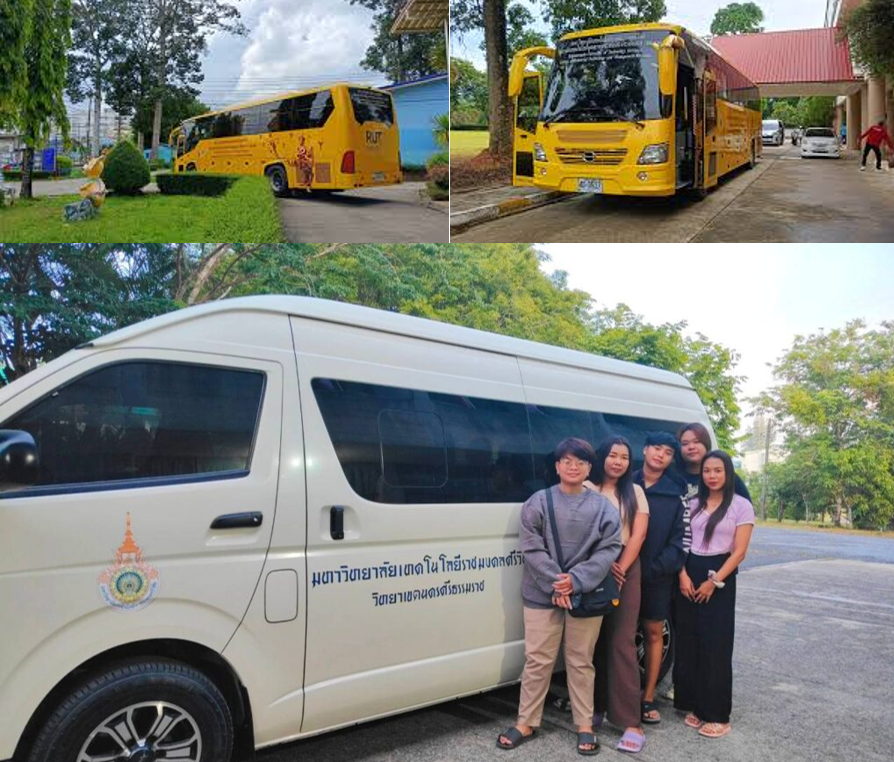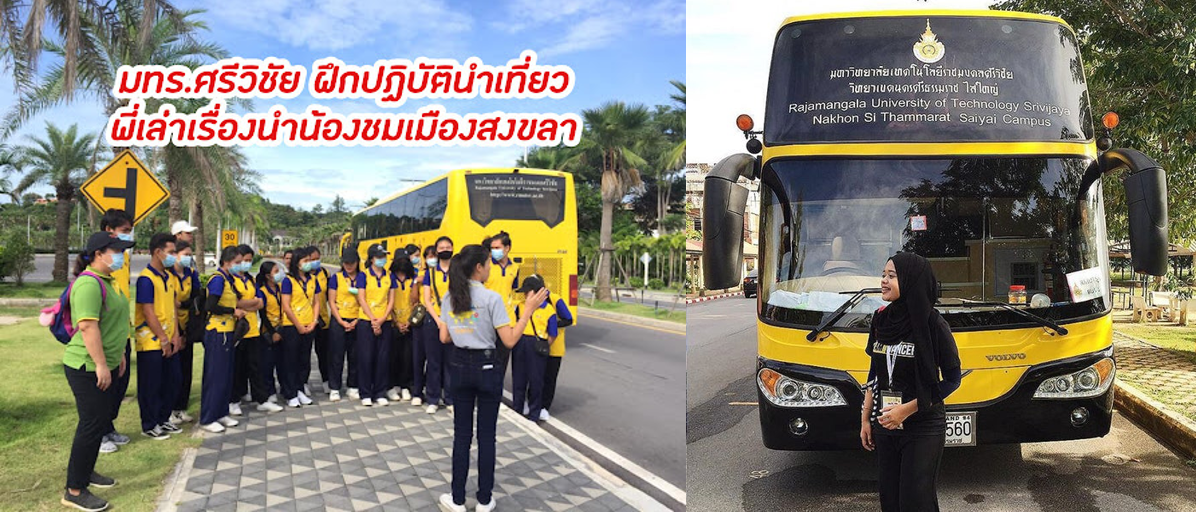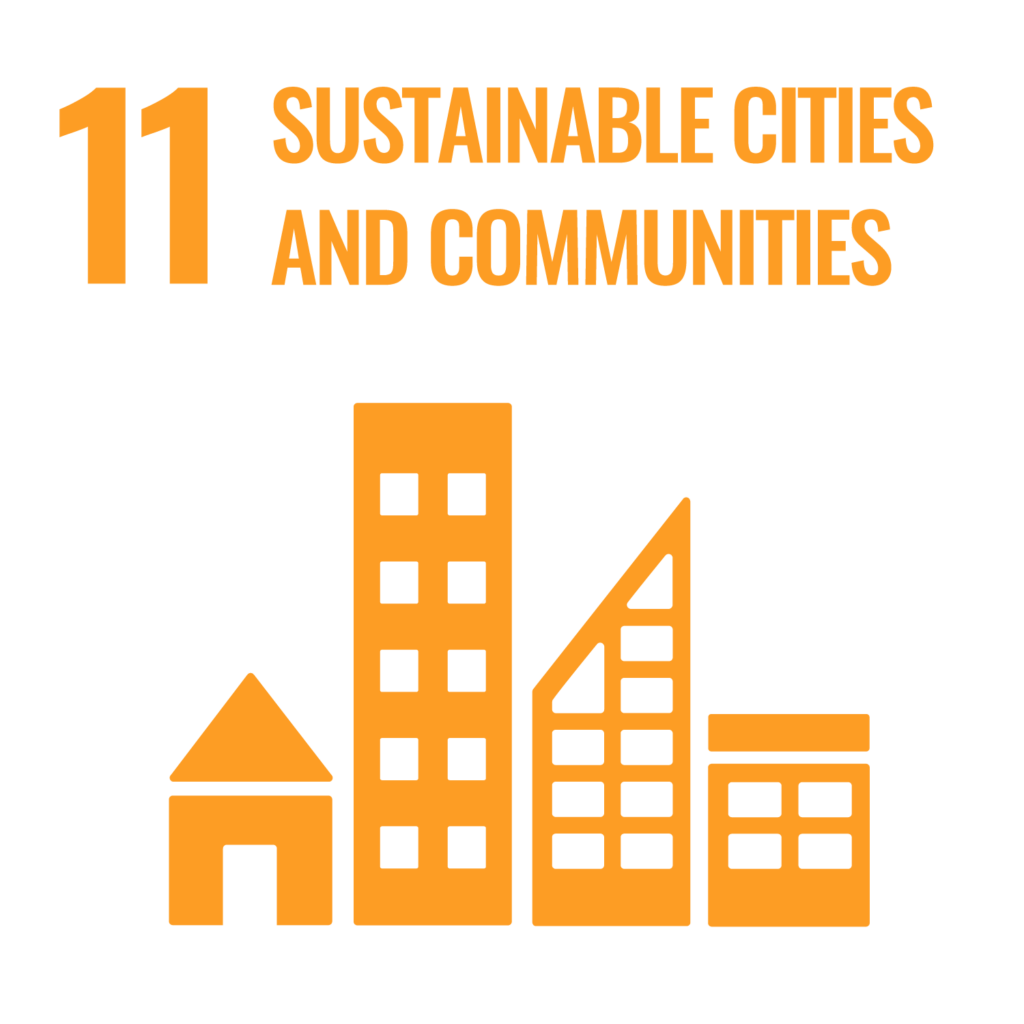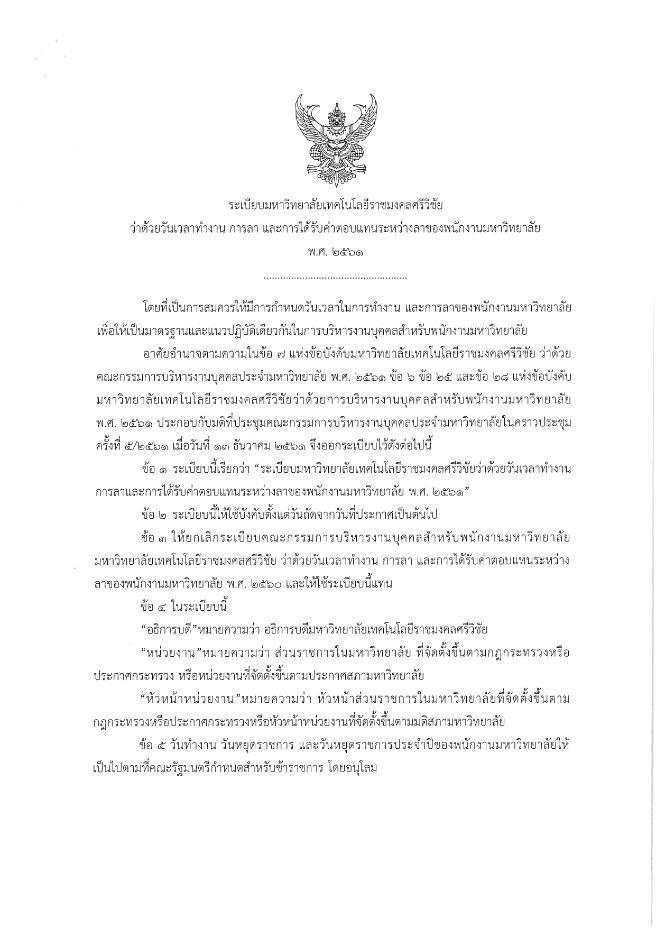Reporters: Dr. Jaray Suwannachart, Asst.Prof.Dr. Tachaya Sangkakool, Asst.Prof.Surawat Moogem and Tussawan Thong-on
Evidence Date: January-December 2023
Related Indicators: 11.4.2
Details:
Rajamangala University of Technology Srivijaya has introduced new guidelines for the use of government vehicles across its various campuses, including Songkhla, Nakhon Si Thammarat, and Trang. These measures aim to improve transportation efficiency for official duties and enhance safety protocols for students and staff.
Streamlined Vehicle Request Process, to facilitate transportation, the university provides a comprehensive online request system for utilizing university vehicles for local routes and official travel to other provinces. Departments responsible for managing vehicle requests are required to maintain meticulous records to ensure optimal vehicle utilization.
- Documentation of Vehicle Use, each department must complete a vehicle usage log every time a government vehicle is assigned for official duties. Drivers must return this log to their respective departments upon completion. If a driver returns after official hours, the log should be submitted the following day to ensure accurate record-keeping.
- Communication with Security, drivers are required to inform security personnel each time they take a vehicle in or out of the university. Security staff will document the vehicle’s entry and exit by signing the usage log, including the date and time.
- Monitoring Entry and Exit, security personnel will monitor and record all movements of government vehicles using a standardized log to maintain an accurate account of vehicle usage.

Guidelines for Government Vehicle Use:
- Permission for Off-Campus Use, requests to take vehicles off-campus must be approved by authorized personnel. The request should pass through the department head, who will endorse it and attach the relevant trip approval documents.
- Control Measures, departments responsible for vehicle services must adhere to established controls, including: Monitoring vehicle entry and exit from the university. Implementing safety protocols for vehicle operation and Following maintenance and operational guidelines for drivers.
- Budget Allocation for Projects, Project managers must include fuel costs and other expenses in their project budgets when requesting vehicle use.
- Welfare Vehicle Use**: The university allows the use of government vehicles for specific welfare events, such as: Official use for ordination ceremonies, weddings, and funerals for immediate family members of staff. Vehicles can be requested for use only once for these events on the day the university hosts the ceremony. Special permission is required for student funerals and Transportation of staff belongings is permitted only within the staff member’s district. For travel beyond this area, approval is at the discretion of authorized personnel.
- Supervision Requirement, all vehicle use requests must include a supervisor to ensure compliance with departmental objectives, safety protocols, and overall benefits for the university.
- Traveling Outside for Overnight Stays, if a vehicle is needed for travel that requires overnight stays, the requester must arrange a backup driver and ensure safe accommodation.

These measures are part of the university’s commitment to ensuring that government vehicles are used effectively while prioritizing the safety and well-being of all students and staff.

The vehicle use policy at Rajamangala University of Technology Srivijaya is designed to enhance efficiency, safety, and accountability in transportation. By implementing structured procedures for vehicle requests and maintenance logs, the policy optimizes resource utilization, ensuring that university vehicles are used judiciously and responsibly. It fosters accountability among drivers, enhances security through coordination with campus personnel, and encourages better financial planning by requiring project managers to include transportation costs in their budgets. Additionally, the policy supports sustainability efforts by controlling vehicle access and potentially promoting alternative transportation methods. Overall, this initiative improves the accessibility of transportation for staff and students while aligning with legal requirements and fostering a sense of community through support for welfare events.
Related Links:




